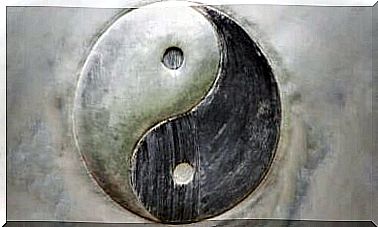Socrates Test With Three Filters: Stop Rumors U0026 Gossip
Socrates’ test with three filters refers to an anecdote from this Greek philosopher. Many people see this anecdote as a great life lesson that can help one deal with gossip and rumors. The story goes that one of Socrates’ disciples was one day very upset. He told Socrates that he had met one of his friends and that the person had spoken ill of him.
Socrates asked the man to calm down. After thinking for a moment, he asked him to wait a minute. Before he could listen to what the man had to say, Socrates had a test with three filters that he wanted the information to go through.
If the message passed the test, it was worthy of hearing.
As always, the Greek philosopher asked the disciple questions: “Are you absolutely sure that what you are going to say is true?” The disciple thought for a moment. In fact, he could not be sure that what his friend said was mean. It was about perspective.
“So you do not know if everything he said about me was true or not,” said the philosopher, and the disciple acknowledged that was the case.
Then Socrates asked his second question: “Do you want to say to me well or not?” The disciple said that it was obviously not good at all. The exact opposite. He thought that what he would share would cause the philosopher discomfort and anguish.
Socrates therefore said, “You will say something bad to me, but you are not entirely sure it is true.” The disciple acknowledged that this was the case.
Then Socrates asked his third and final question: “Will what you want to tell me about my friend help me?” The disciple hesitated. He did not know if the information was useful or not. Maybe it would distance itself from the friend, but given that he did not know if it was true, it might not be useful at all.
In the end, the philosopher refused to listen to what the disciple wanted to say. “If what you want to tell me is not true, not good and not even useful, why would I want to hear it?” he finally said to the disciple.
Truth, goodness and usefulness are the basis of Socrates’ test with three filters. Socrates considered that a person must ask himself these questions before saying anything else: “Am I sure what I am saying is true?”, “Is what I want to say something good?” and “Do I really need to say that and is it useful?”
This triple filter is an excellent guide, both for what to say and what to listen to. It is a set of parameters that represent healthy and constructive communication.
In everyday life, it is not easy to define what is true, good and necessary. These abstract concepts are sometimes difficult to apply. This is why there are also some additional questions that can help you with Socrates’ test:
- Regarding truth: do I actually know that this information is true? Can I bet on that? Will I be able to prove it to anyone? Am I willing to put my reputation at stake over this?
- Regarding the good: does it benefit me or the other person? Will it make him or me a better person and evoke positive emotions? Will the situation of those involved improve?
- Regarding the necessary or useful: will the person’s or my life be improved by knowing this information? Can she take any practical action based on this message? In what way will she be harmed or affected by not knowing this information?
As we pointed out at the beginning, Socrates’ test with the three filters focuses mainly on gossip and rumors. Using it allows us to put an end to the rumors that sometimes haunt us. However, it is also valid for other types of messages, such as those we see in social media.









